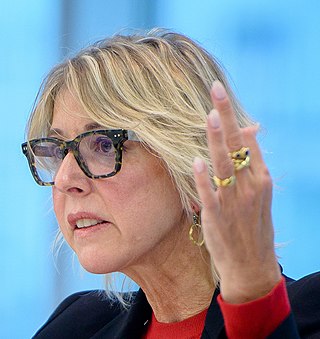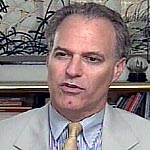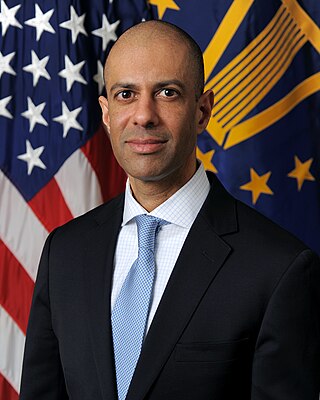
The Treaty on the Non-Proliferation of Nuclear Weapons,commonly known as the Non-Proliferation Treaty or NPT,is an international treaty whose objective is to prevent the spread of nuclear weapons and weapons technology,to promote cooperation in the peaceful uses of nuclear energy,and to further the goal of achieving nuclear disarmament and general and complete disarmament. Between 1965 and 1968,the treaty was negotiated by the Eighteen Nation Committee on Disarmament,a United Nations-sponsored organization based in Geneva,Switzerland.

In nuclear ethics and deterrence theory,no first use (NFU) refers to a type of pledge or policy wherein a nuclear power formally refrains from the use of nuclear weapons or other weapons of mass destruction (WMD) in warfare,except for as a second strike in retaliation to an attack by an enemy power using WMD. Such a pledge would allow for a unique state of affairs in which a given nuclear power can be engaged in a conflict of conventional weaponry while it formally forswears any of the strategic advantages of nuclear weapons,provided the enemy power does not possess or utilize any such weapons of their own. The concept is primarily invoked in reference to nuclear mutually assured destruction but has also been applied to chemical and biological warfare,as is the case of the official WMD policy of India.

Joseph Samuel Nye Jr. is an American political scientist. He and Robert Keohane co-founded the international relations theory of neoliberalism,which they developed in their 1977 book Power and Interdependence. Together with Keohane,he developed the concepts of asymmetrical and complex interdependence. They also explored transnational relations and world politics in an edited volume in the 1970s. More recently,he pioneered the theory of soft power. His notion of "smart power" became popular with the use of this phrase by members of the Clinton Administration and the Obama Administration.

Deterrence theory refers to the scholarship and practice of how threats of using force by one party can convince another party to refrain from initiating some other course of action. The topic gained increased prominence as a military strategy during the Cold War with regard to the use of nuclear weapons and is related to but distinct from the concept of mutual assured destruction,according to which a full-scale nuclear attack on a power with second-strike capability would devastate both parties. The central problem of deterrence revolves around how to credibly threaten military action or nuclear punishment on the adversary despite its costs to the deterrer. Deterrence in an international relations context is the application of deterrence theory to avoid conflict.
Robert L. Gallucci is an American academic and diplomat,who formerly worked as president of the John D. and Catherine T. MacArthur Foundation. He previously served as dean of the Edmund A. Walsh School of Foreign Service at Georgetown University,from 1996 to June 2009. Prior to his appointment in 1996,for over two decades he had served in various governmental and international agencies,including the Department of State and the United Nations.

Jon Wolfsthal is an American security analyst currently serving as director of global risk at the Federation of American Scientists.

Danielle "Dani" Pletka is an American conservative commentator. She is a senior fellow at the American Enterprise Institute (AEI),a conservative think tank,and the former vice president for foreign and defense policy at AEI. She is also an Adjunct Instructor at Georgetown University's Center for Jewish Civilization. From 1992 to 2002,Pletka was a senior professional staff member at the Senate Foreign Relations Committee,working for Republican Jesse Helms.

Joseph Cirincione (,SIR-in-see-OWN-ee is a national security analyst and author. He served as the president of the Ploughshares Fund,a public grant-making foundation focused on nuclear nonproliferation and conflict resolution.
Military action against Iran is a controversial topic in Israel and the United States. Proponents of a strike against Iran point to the threat presented by Iran's nuclear program as a casus belli. Many Israelis,and particularly hardline politicians such as Prime Minister Benjamin Netanyahu,American neoconservatives,Iranian dissidents support military action to stop the program or go further to overthrow the regime. Opposition to military action is often based in pacifism,but some who are opposed to military action against Iran are opposed for other reasons.

Henry D. Sokolski is the founder and executive director of the Nonproliferation Policy Education Center,a Washington,D.C.-based think tank promoting a better understanding of strategic weapons proliferation issues among policymakers,scholars,and the media. He teaches as an adjunct professor at The Institute of World Politics in Washington,D.C.,and at the University of Utah and has an appointment as senior fellow for nuclear security studies at the University of California at San Diego's School of Global Policy and Strategy.

Francis J. Gavin is an American historian currently serving as the Giovanni Agnelli Distinguished Professor and Director of the Henry A. Kissinger Center for Global Affairs at Johns Hopkins University School of Advanced International Studies in Washington,D.C. He is also the chairman of the Board of Editors for the Texas National Security Review.

Seyed Hossein Mousavian is an Iranian policymaker and scholar who served on Iran's nuclear diplomacy team in negotiations with the EU and International Atomic Energy Agency. He resides in the United States and is a visiting research scholar at Princeton University.
Mark Dubowitz is a South African-born Canadian-American attorney and former venture capitalist,currently serving as CEO of the Foundation for Defense of Democracies,a non-profit think-tank and lobbying institute part of the Israel lobby in the United States,that advocates for hawkish foreign policy. He is a proponent of sanctions against Iran and was a leading critic of the Iran nuclear agreement,officially called the Joint Comprehensive Plan of Action. According to The New York Times,“Mark Dubowitz’s campaign to draw attention to what he saw as the flaws in the Iran nuclear deal has taken its place among the most consequential ever undertaken by a Washington think tank leader.”
Charles Louis Glaser is a scholar of international relations theory,known for his work on defensive realism,as well as nuclear strategy and U.S. policy toward China. He is a Senior Fellow in the Security Studies Program at MIT and an Emeritus Professor of Political Science and International Affairs at George Washington. He was the founding director of the Institute for Security and Conflict Studies at the George Washington University's Elliott School of International Affairs,as well as a professor of political science and international affairs. His best-known book,Rational Theory of International Politics:The Logic of Competition and Cooperation received an Honorable Mention for 2011 Best Book from the International Security Studies Section of the International Studies Association.

The Joint Comprehensive Plan of Action,commonly known as the Iran nuclear deal or Iran deal,is an agreement on the Iranian nuclear program reached in Vienna on 14 July 2015,between Iran and the P5+1 together with the European Union.
Jeffrey Lewis is an American expert in nuclear nonproliferation and geopolitics,currently a professor at the James Martin Center for Nonproliferation Studies at the Middlebury Institute of International Studies at Monterey,and director of the CNS East Asia Nonproliferation Program. He has written two books on China's nuclear weapons,and numerous journal and magazine articles,blog posts,and podcasts on nonproliferation and related topics.
Compellence is a form of coercion that attempts to get an actor to change its behavior through threats to use force or the actual use of limited force. Compellence can be more clearly described as "a political-diplomatic strategy that aims to influence an adversary's will or incentive structure. It is a strategy that combines threats of force,and,if necessary,the limited and selective use of force in discrete and controlled increments,in a bargaining strategy that includes positive inducements. The aim is to induce an adversary to comply with one's demands,or to negotiate the most favorable compromise possible,while simultaneously managing the crisis to prevent unwanted military escalation."

C.S. Eliot Kang is an American diplomat and member of the Senior Executive Service. He currently serves as the Assistant Secretary for the Bureau of International Security and Nonproliferation (ISN) at the U.S. Department of State. From January to July 2021 and January 2017 to January 2018,Kang served as acting ISN Assistant Secretary and also exercised the authority of the Under Secretary of State for Arms Control and International Security Affairs. He also served as acting ISN Assistant Secretary from January to June 2009.

Vipin Narang is an American political scientist serving as the Acting Assistant Secretary of Defense for Space Policy,a portfolio that includes space and missile defense policy as well as nuclear deterrence and countering weapons of mass destruction policy. He is a Professor of Political Science at MIT. He is known for his research on nuclear weapons,conflict and proliferation. His research has shown that there are different nuclear weapons postures. These postures have implications for the likelihood of conflict between nuclear states,as well as bargaining outcomes in disputes.
Nina Tannenwald is an American political scientist. She is a senior lecturer in the Department of Political Science at Brown University,and a former director of Brown's International Relations Program.













